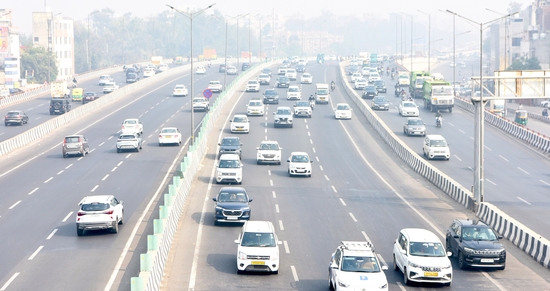Delay in assent to bills: Centre in SC opposes Kerala's stand to withdraw plea against Guv
Delay in assent to bills: Centre in SC opposes Kerala's stand to withdraw plea against Guv
New Delhi, The Centre in the Supreme Court on Tuesday opposed Kerala government's stand to withdraw its petition against Governor over the delay in approving bills passed by the state assembly.

The submission of senior advocate K K Venugopal, appearing for the Kerala government, before a bench comprising Justices P S Narasimha and Joymalya Bagchi was opposed by solicitor general Tushar Mehta.
“These are constitutional issues. It cannot be filed lightly and withdrawn lighty…we are working on the issues involved,” Mehta said.
Calling it “strange”, Venugopal asked how could his plea be opposed.
“When a person of your stature withdraws then even withdrawal has to be taken seriously,” Mehta added.
Venugopal said the petition, which was filed against the delay on the part of Governor in granting assent to bills, had become infructuous as the bills were sent to President later.
He said the aspect was challenged in a subsequent plea of the state government.
The bench acknowledged that the state had the right to withdraw the plea and posted the matter on May 13.
On April 22, the top court said it would examine whether the recent judgement on a plea of Tamil Nadu, fixing timelines for the grant of assent to bills, covered the issues raised by the Kerala government in its pleas.
“We will look into that judgement and see whether issues raised here are covered,” the bench said when attorney general R Venkataramani and Mehta, appearing for the Centre and the Governor's office, respectively, said the recent judgement of a bench headed by Justice J B Pardiwala did not cover the issues raised by the Kerala government.
Acting on a plea of Tamil Nadu government, a bench of Justices Pardiwala and R Mahadevan on April 8 set aside the reservation of the 10 bills for President's consideration in the second round holding it as illegal, erroneous in law.
The bench, for the first time, also prescribed a time limit for President to decide on the bills reserved for her consideration by Governor. It set a three-month timeframe from the date on which such reference was received.
Kerala sought similar directions in its petition.
Venugopal said the pleas of the state were covered by the recent judgement.
He urged the bench to allow the pleas of the Kerala government in terms of the Tamil Nadu judgement but Mehta insisted on advancing submissions and said Kerala's case was not covered by the Tamil Nadu judgement.
The bench then asked Venugopal to mention the third and subsequent plea of the state government, challenging the withholding of assent by President, before the CJI so that it can also be referred to it.
Venugopal said the Chief Justice of India directed listing of the petition on May 13.
The bench said a mention had to be made before the CJI for tagging the other petition with the present one.
In 2023, the top court expressed displeasure over the then Kerala Governor Arif Mohammed Khan "sitting" for two years on bills passed by the state legislature.
Khan is currently Governor of Bihar.
The top court, on July 26, last year, agreed to consider the plea of opposition-ruled Kerala alleging the denial of assent to bills passed by the legislative assembly.
The Kerala government alleged that Khan referred certain bills to President Droupadi Murmu and those were yet to be cleared.
Taking note of the pleas, the top court issued notices to the Union Ministry of Home Affairs and the secretaries of the Kerala Governor.
The state said its plea related to the acts of the Governor in reserving seven bills, which he was required to deal with himself, to the President.
Not one of the seven bills had anything to do with Centre-state relations, it argued.
The bills were pending with the Governor for as long as two years and his action "subverted" the functioning of the state legislature, rendering its very existence "ineffective and otiose", the state added.
"The bills include public interest bills that are for the public good, and even these have been rendered ineffective by the Governor not dealing with each one of them 'as soon as possible', as required by the proviso to Article 200," the plea said.
The state government had said the home ministry informed it that President had withheld assent to four of the seven bills University Laws Bill, 2021; Kerala Co-operative Societies Bill, 2022; University Laws Bill, 2022; and University Laws Bill, 2022.
The Constitution is silent on how much time the President can take in granting assent to a bill passed by a state legislature and referred to the Rashtrapati Bhavan for presidential consideration or for denying consent.
Article 361 of the Constitution says the President, or Governor of a state, shall not be answerable to any court for the exercise and performance of the powers and duties of his office or for any act done or purporting to be done by him in the exercise and performance of those powers and duties.
This article was generated from an automated news agency feed without modifications to text.






